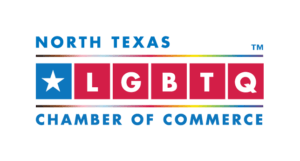Guarding What Matters — Why Data Governance Is Every Small Business’s Secret Advantage
For North Texas entrepreneurs—especially members of the North Texas LGBTQ Chamber of Commerce—business success often comes down to relationships built on trust. But in a digital-first world, trust doesn’t just live in customer interactions. It lives in your data.
Whether you’re managing client invoices, customer details, or community member information, understanding data governance—the way you collect, store, and protect information—isn’t just a nice-to-have. It’s the backbone of long-term credibility.
TL;DR
Data governance = knowing what data you have, who can touch it, and how it’s protected.
For small businesses, strong data practices mean:
• Reduced legal and financial risks
• Better customer confidence
• Easier collaboration across teams
• Smoother compliance with state and industry standards
It’s less about tech jargon—and more about keeping your digital house in order.
Why It Matters for Small Businesses
Unlike large corporations with full compliance departments, small businesses thrive on agility. That flexibility can also make them vulnerable. Without clear data ownership and process discipline, files get lost, records go stale, and risk creeps in unnoticed.
A solid data governance framework helps your business:
• Stay consistent. Teams know where information lives and how to use it.
• Reduce mistakes. Data duplication or outdated details disappear.
• Stay compliant. Regulations like the Texas Privacy Protection Act can be complex, but policies and tracking make compliance easier.
• Build visibility. Partners, investors, and clients see you as organized and trustworthy.
Think of governance like a good accounting system—quietly powerful and absolutely essential.
Elements of Good Data Governance
Checklist: Build a Simple Data Governance Framework
Here’s a quick starter plan:

Identify your key data types — customer info, invoices, HR records.

Assign ownership — who’s responsible for each dataset?

Implement a secure workspace like Airtable for shared access.

Create clear access rules using tools like Slack for team communications.

Back up data regularly to cloud storage.

Review policies quarterly for accuracy and compliance.

Document every change and decision.
A one-page checklist taped near your desk beats a 40-page manual that no one reads.
When Digital Signatures Strengthen Governance
Authenticity matters. Every signed contract or client form represents both your business and your reputation. Moving from paper to electronic signatures enhances governance by ensuring every transaction is verifiable, tamper-evident, and securely stored.
Capturing signatures digitally with verification and audit trails gives peace of mind—and cuts down on messy paperwork. If you’re not sure where to start, this may help.
Tools That Quietly Support Governance
You don’t have to overhaul everything. Small, well-chosen tools can reinforce good data habits:
• HubSpot helps centralize contact and sales data.
• QuickBooks automates accounting and tracks data changes.
• Asana assigns responsibilities and maintains project history.
Each adds a layer of clarity without overwhelming your workflow.
FAQ: Common Questions About Data Governance
Q: We’re a team of five. Do we really need this?
Yes. Governance doesn’t have to be complex—it’s about documenting how you manage sensitive data, even if it’s stored in a shared folder.
Q: How often should we audit our data?
Quarterly reviews catch small issues before they become big ones.
Q: What’s one mistake small businesses make?
Relying on one person’s laptop as the “system.” Always use shared, backed-up platforms.
Q: Is data governance expensive?
Not really. Many affordable tools offer governance features out of the box.
Spotlight: Using Visual Collaboration for Clarity
Governance works best when everyone can see the process. Platforms such as Miro let teams design quick visual maps of how data flows between tools, people, and departments. It’s surprisingly effective for onboarding new staff or documenting how customer data moves from intake to invoice.
For members of the North Texas LGBTQ Chamber of Commerce, data governance is more than compliance—it’s community responsibility. Managing data with care signals that your business values both privacy and integrity. Start small, structure what you already have, and grow from there.
Remember: organized data = organized business. Your future partners, clients, and customers will thank you for it.
